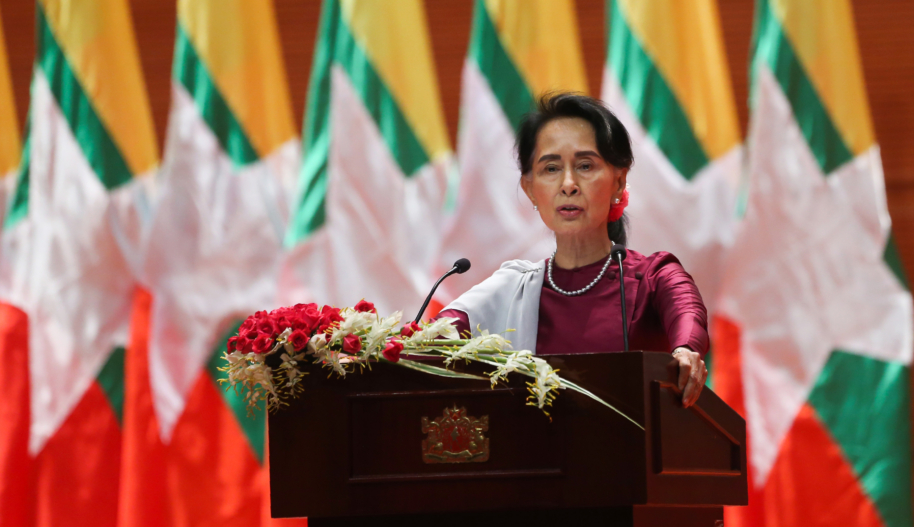In response to the sentencing of Aung San Suu Kyi to four years in prison, Amnesty International’s Deputy Regional Director for Campaigns Ming Yu Hah said:
“The harsh sentences handed down to Aung San Suu Kyi on these bogus charges are the latest example of the military’s determination to eliminate all opposition and suffocate freedoms in Myanmar. The court’s farcical and corrupt decision is part of a devastating pattern of arbitrary punishment that has seen more than 1,300 people killed and thousands arrested since the military coup in February.
“There are many detainees without the profile of Aung San Suu Kyi who currently face the terrifying prospect of years behind bars simply for peacefully exercising their human rights. They must not be forgotten and left to their fate.
“As violence escalates, displacing tens of thousands of people and setting up a humanitarian crisis in the middle of an ongoing pandemic, the situation in Myanmar today is alarming in the extreme. Without a decisive, unified and swift international response this can and will get worse.
“The international community must step up to protect civilians and hold perpetrators of grave violations to account, and ensure humanitarian and health assistance is granted as a matter of utmost urgency. The country’s healthcare system is in tatters, the economy is on a precipice, and food shortages loom. The world cannot sit back and defer to ASEAN — states must act now to ensure an end to unlawful killings, arbitrary detention, torture and other gross violations, and to the decades-long pattern of impunity that has led us to where we are today.
“It is shameful that ASEAN has yet to fully implement its emergency consensus after more than half a year. Other than blocking military leader Min Aung Hlaing from attending a handful of meetings, ASEAN has remained shockingly weak as the Myanmar military continues to crush peaceful dissent, sow destruction, and wipe out freedom of expression.”
Background
Myanmar’s de facto leader State Counsellor Aung San Suu Kyi was arrested on 1 February, along with other elected officials, activists and members of the Union Election Commission.
The guilty sentences handed down on 6 December were for incitement against the military under Section 505 (b) and for alleged breaches of COVID-19 measures under Section 25 of the Natural Disaster Management Law. She is facing a total of 11 criminal cases, including under Section 67 of the Telecommunications Law, and the Export and Import Law (related to the possession of walkie talkie devices in her home). She has also been accused of violating Section 55 of the Anti-Corruption Law and the Official Secrets Act. All of her hearings have been closed to the public.
On 24 April, the ASEAN held an emergency summit on Myanmar in Jakarta. A Five-Point Consensus was reached at the summit, which was attended by Myanmar’s commander-in-chief Senior General Min Aung Hlaing, who has been barred from more recent sessions.
The Consensus called for an immediate cessation of violence in Myanmar, constructive dialogue among all parties, the appointment of a special ASEAN envoy to facilitate dialogue, the provision of humanitarian assistance, and a visit by the envoy to Myanmar. More than seven months on from the summit, it is clear that this approach has failed to yield truly meaningful results. ASEAN’s special envoy has been blocked from visiting Suu Kyi, who is being held at an undisclosed location in the capital Naypyidaw.
The military has continued to kill protesters, bystanders and other civilians, and arrest, detain, prosecute and imprison activists, human rights defenders, media workers, medical workers, artists, political opponents, and critics of the military for exercising their rights to freedom of expression, association and peaceful assembly. According to the Assistance Association for Political Prisoners Burma (AAPPB), as of 3 December, the military has killed more than 1,300 people and arrested more than 10,000.













